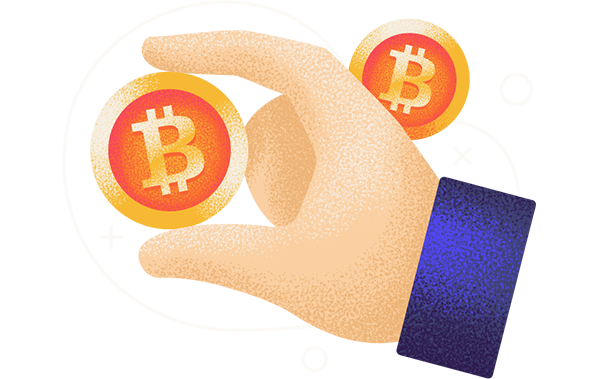In an era dominated by digital technology it should come as no surprise that someone has developed a digital currency. Paypal is a digital payment system but Bitcoin, developed in 2009, is an actual digital currency that, in the last several months, has generated excitement and interest – and yes, a little concern -- in the financial services industry.
Bitcoin uses crytography to create and transfer money. Any country's currency can be transformed into bitcoins so users can make payments. To use a bitcoin you need wallet software that runs on a computer or mobile device.
Like any other currency, bitcoins can be traded on currency exchanges. During the latter half of 2013 trading in bitcoins became quite volatile. Traders made a lot of money buying and selling bitcoins last year but some lost a lot of money as well.
Behind the excitement
So what's the appeal? We turned to some economic experts for answers.
“My guess is that Bitcoin has a ‘coolness’ factor that has attracted a strange collection of libertarians and other anti-government types – including people who want to conduct illegal transactions, and others who see it as a great speculative opportunity,” said David Parsley, an economics and finance professor at Vanderbilt University.
John C. Alexander, Jr., a professor of investments at Clemson University, is skeptical of the argument that Bitcoin represents a new currency. He sees it more as a new payment system.
“We have metrics relative to payment system valuation in the our public equity markets, such as Ebay, and in the past Paypal,” he said. “Despite these valuation metrics, ultimately the value of a Bitcoin transaction and the value of the Bitcoin equity is whatever the last person was willing to pay.”
Appealing anonymity
Nicolas Christin, assistant research professor in electrical and computer engineering at Carnegie Mellon University, believes the degree of anonymity provided by Bitcoin transactions is part of the appeal. He also sees some drawbacks to its use in normal, day-to-day transactions.
“The fact that Bitcoin payments take around ten minutes to be confirmed -- and basically one hour for being completely vetted -- is a real problem for quick, face-to-face transactions,” he said. “It is not unsolvable -- all you need is an escrow or insurance system built on top of the existing mechanisms to make this work well -- but this will add costs, and whether or not this will be a really practical solution compared to the alternatives remains to be seen.”
Parsley is also skeptical that Bitcoin has much practical value as a currency.
“Most people still tally in dollars, euros, yen etc.,” he said. “I don’t see that going away.”
Some governments and their institutions appear leery of the Bitcoin as well. Russia's central bank has expressed deep reservations about Bitcoin transactions, saying they may be useful to terrorists and run counter to the country's laws. In December 2013 the People's Bank of China stepped in to block merchants from accepting bitcoins and barred banks and payment processors from converting bitcoins into the Chinese currency.
Finally, law enforcement seems to have a concern with the anonymous nature of bitcoin transactions. The U.S. Justice Department recently announced the arrest of Charlie Schrem, CEO of Bitcoin payment processor BitInstant and vice chairman of the Bitcoin Foundation on money laundering charges in connection with the Silk Road anonymous black market for drugs.
Ask the experts
- Bitcoin, the open source peer-to-peer payment network and digital currency, has captured the imagination of Wall Street. Why has it become so popular?
- How practical is a digital currency? Do you think this is the way we'll pay for things in the future?
- Some people who traded in Bitcoins have made a lot of money as its value has risen. Doesn't that suggest there are downside risks? Are there other reasons consumers should proceed cautiously?
- Could Bitcoin find its niche as one of these systems?
- Why has Bitcoin come under so much legal fire? Are the company's days numbered as a result?
- What types of criminal activities could theoretically be facilitated with the use of Bitcoin?
Ask the Experts
Assistant Professor of Economics at Radford University
Read More
Professor of Economics at University of California, Santa Barbara
Read More
Assistant Professor of Computer Science at the Rensselaer Polytechnic Institute
Read More
Professor of Law, Washington and Lee University School of Law
Read More
Chairman/Professor of Law Enforcement, Vincennes University
Read More
President and CEO, International Centre for Missing & Exploited Children
Read More









WalletHub experts are widely quoted. Contact our media team to schedule an interview.